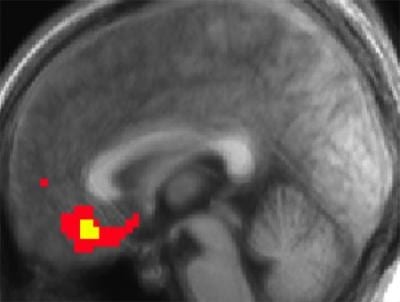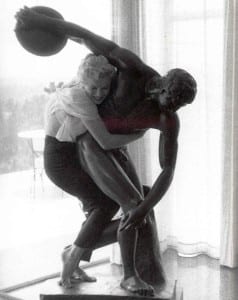Brain Anatomy and the Ancient Olympics
By news editor, on 4 July 2012
![]() Annette Mitchell, PhD student (UCL Greek & Latin)
Annette Mitchell, PhD student (UCL Greek & Latin)
 Linking neuroscience and the ancient Olympics appears curious at first sight, but after hearing Professor Semir Zeki (UCL Neuroesthetics) express how neuroscience can illuminate ideological elements of the ancient Olympics these differing subjects proved to be a stimulating pairing.
Linking neuroscience and the ancient Olympics appears curious at first sight, but after hearing Professor Semir Zeki (UCL Neuroesthetics) express how neuroscience can illuminate ideological elements of the ancient Olympics these differing subjects proved to be a stimulating pairing.
The setting was a discussion on 28 June between Professor Zeki and Professor Chris Carey (UCL Greek and Latin) entitled The pursuit of Olympic ideals – physical, neural and aesthetic. Professor Zeki asked Professor Carey about aspects related to the ancient Olympics and concluded by providing neuro-anatomical explanations for them.
The Original Olympics
Professor Carey began by introducing the ancient Olympics, which is commonly believed to have first occurred in 776 BC. The Games were likely instituted so that the various ancient Greek city-states, which were often at war, could peacefully compete. The Olympic Games were, essentially, sublimated aggressive impulses.
Olympic competitors were, indeed, ruthless. In the pancrateon – a wrestling competition – any move, however harmful, was tolerated, provided it did not kill an opponent, which was “frowned upon”.
Athletics undergirded by aggression became part of the fabric of Greek culture. Indeed, everywhere the Greeks subsequently founded cites there were always wrestling arenas and gymnasiums (sporting grounds).
 Close
Close




